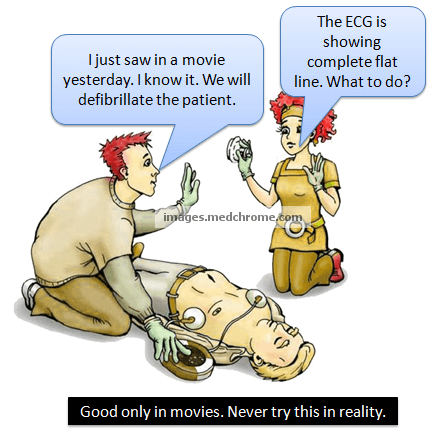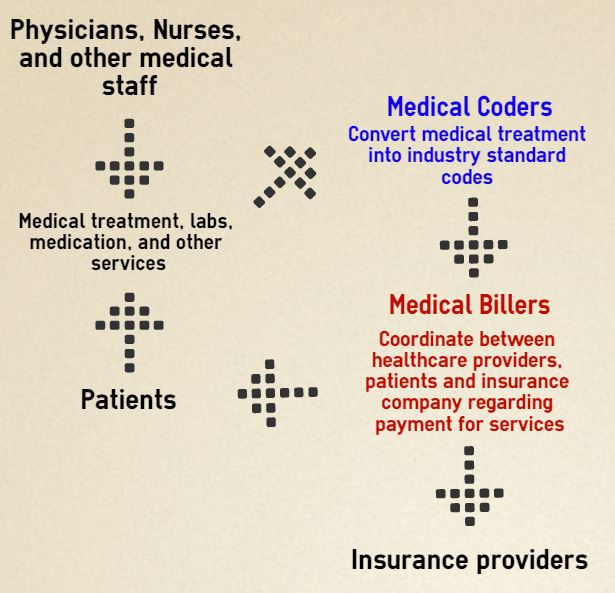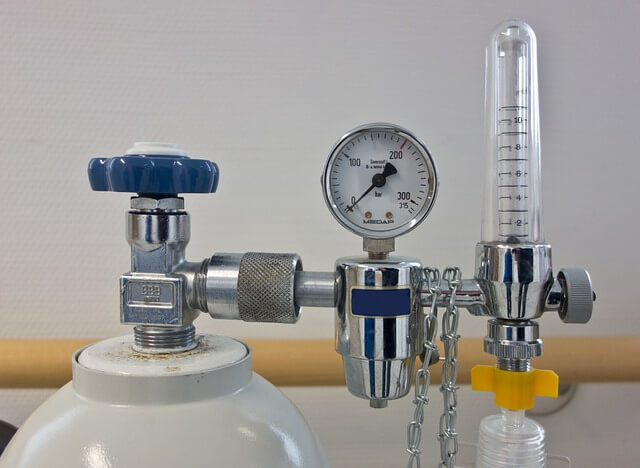
What is asystole?
Asystole is a state of no cardiac electrical activity.
It is seen as a “flat-line” in ECG monitor. However, other possible causes of flat-line should be ruled out before calling it asystole. They are:
- Loose or disconnected ECG leads
- Loss of power to ECG monitor
Once, asystole is confirmed, you must quickly look for possible underlying causes. They can be recalled by the H‘s and T‘s.
- Hypovolemia, Hypoxia, Hydrogen ion (acidosis), Hyper-/hypokalemia, Hypothermia.
- Toxins, Tamponade(cardiac), Tension pneumothorax, Thrombosis (coronary and pulmonary).
How does defibrillator work?
Conducting system of heart possess several pacemakers – Sinoatrial (SA) node, Atria, Atrioventricular (AV) node, Ventricles. Under normal conditions, other pacemakers are suppressed by the more rapid impulses from above (i.e. sinus rhythm from SA node). Should the SAN fail to produce impulses the AVN and other pacemakers can take over. Sometimes, an event causes different pace maker cells to start firing out of sequence. As a result, the heart will start to contract in an uncoordinated fashion and will fail to effectively pump blood.
Defibrillator depolarizes a critical mass of the heart muscle (most of the cells to fire at once), synchronize them and allow SA node to takeover the pacemaker function once again when the heart repolarizes.
Why defibrillation of asystole is useless?
Asystole means there is no electrical activity in the myocytes i.e. non-functioning of cardiac pacemakers rather than disorganized functioning of pacemakers. Electrical stimulation of heart activates or deactivates ion pumps. But, if heart has been long deprived of oxygen (hypoxia), necessary electrolytes, etc. – electrical stimulation will not work. So, the primary cause for asystole must be sought and treated to make the heart tissues excitable once again.
There is only one situation in which the monitor shows asystole and the doctor might still decide to defibrillate. That is situation is when the patient is suspected to be having a fine Ventricular Fibrillation.
So how is asystole managed?
Asystole is primarily treated with CPR (Cardiopulmonary Resuscutation) combined with an intravenous vasopressor such as epinephrine (adrenaline).

He is the section editor of Orthopedics in Epomedicine. He searches for and share simpler ways to make complicated medical topics simple. He also loves writing poetry, listening and playing music. He is currently pursuing Fellowship in Hip, Pelvi-acetabulum and Arthroplasty at B&B Hospital.


